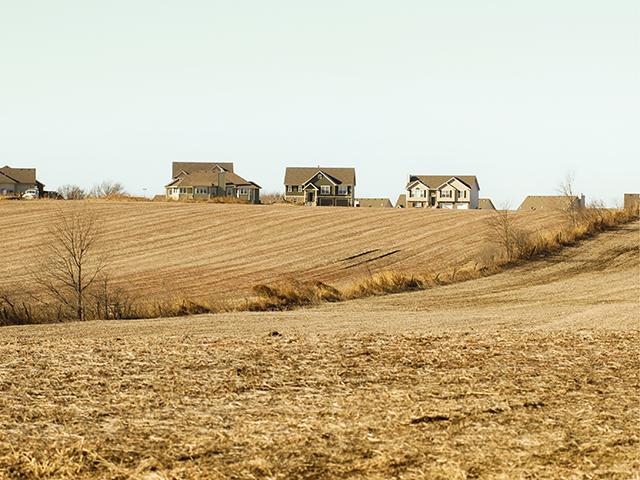We'd Like To Mention
It Starts With the Land
The U.S. leaves many impressions on first-time visitors, but nearly all are taken aback by the country's vastness from coast to coast. There are magnificent cities everywhere in the world, but few developed countries can compete with our seemingly limitless supply of open lands.
Nowhere is this more evident than when you're driving through the rural countryside, where America's farms and ranches abound. Open spaces stretch as far as the eye can see, acre after acre, mile after mile.
This idyllic landscape changes rapidly as you near a metro area. My kids start rolling their eyes when I talk about urban sprawl and all the irreplaceable farmland being paved over. But, it has been happening for years at an alarming rate.
National organizations such as the American Farmland Trust (AFT) have been studying and talking about this issue since its founding in 1980. From 2001 to 2016, AFT says the U.S. lost or compromised 2,000 acres of farm- and ranchlands every day. That's land not only lost forever to feed us but that can also sequester carbon, protect water quality and provide habitat for diverse wildlife and native species.
AFT is not antigrowth. The nonprofit advocates smarter development to safeguard the land that grows our food. President and CEO John Piotti says food security is taking on new urgency as the pandemic, the war in Ukraine, widespread drought and other challenges have exposed the global food system's vulnerabilities to these disruptions.
Its newest study, "Farms Under Threat 2040: Choosing an Abundant Future," takes a look forward to project how the ongoing loss of farmland could affect us in the future. It offers three contrasting development scenarios from 2016 to 2040 and broad policy pathways the country might take. They are:
P[L1] D[0x0] M[300x250] OOP[F] ADUNIT[] T[]
Business As Usual. The report shows that if current trends continue, another 18.4 million acres of productive farmland will be lost between 2016 and 2040. That's nearly the size of South Carolina. Continuing on this current path means six states will convert (take out of ag production) more than 10% of their ag land. Nearly half of the conversion will occur on the nation's most productive, versatile and resilient farmland and ranchland. AFT calls this Nationally Significant land.
Runaway Sprawl. If more Americans choose to live on large lots in rural areas, more than 1 million acres of agricultural land will be lost or compromised every year. That's nearly 24.4 million acres by 2040. In this scenario, more than 12 million acres of Nationally Significant land will be converted.
Better Built Cities. If policymakers and land-use planners focus on reducing sprawl by promoting compact development, ag land conversions could be cut by 7.5 million acres compared to Business As Usual. Conversion of Nationally Significant land would decrease by 42%. And, a Better Built Cities future would spare more than half the farmland that would be converted in the Runaway Sprawl scenario: 13.5 million acres.
Piotti warns without proactive policymaking and land-use planning at all levels of government, the relentless march of Business As Usual development across the American landscape will continue or accelerate into Runaway Sprawl.
AFT recommends the following policies:
1. Embrace smart-growth principles to improve land-use planning.
2. Permanently protect agricultural land to secure a supply of land in perpetuity.
3. Advance smart solar to boost both renewable energy and farm viability.
4. Support farmland access to create opportunities for a new generation of farmers, particularly historically marginalized producers.
Landowner or not, no American should take for granted our nation's abundance of land and assume there won't eventually be consequences for turning fertile fields into concrete jungles. AFT's latest report offers important insights on land use for policymakers and developers to consider to ensure America's farmers can continue to help feed the world. After all, it starts with the land.
**
-- Write Gregg Hillyer, 2204 Lakeshore Dr., Suite 415, Birmingham, AL 35209, email gregg.hillyer@dtn.com, or follow Gregg on Twitter @GreggHillyer
[PF_0822]
(c) Copyright 2022 DTN, LLC. All rights reserved.




